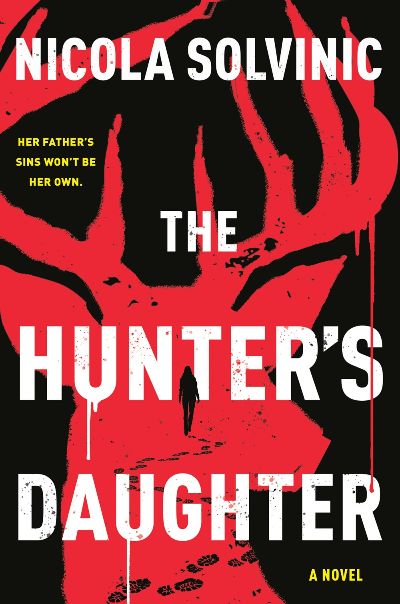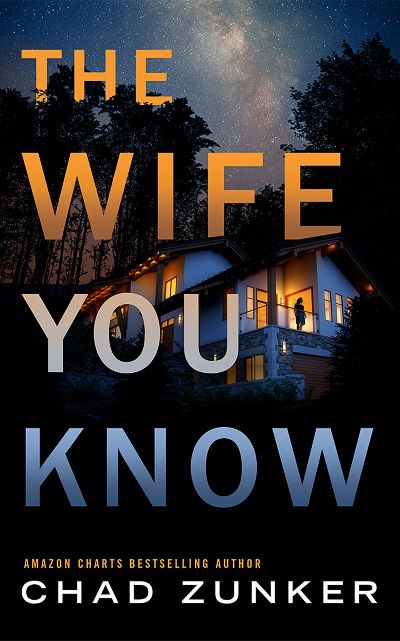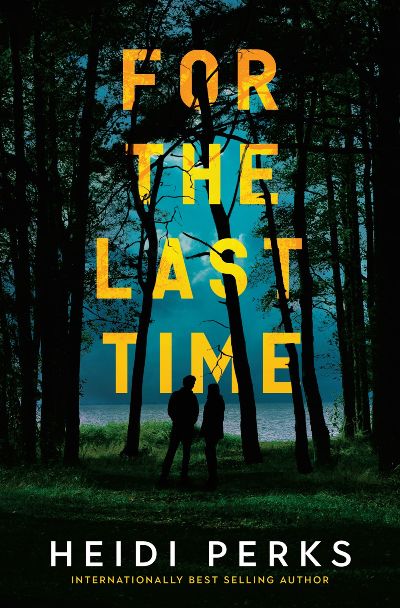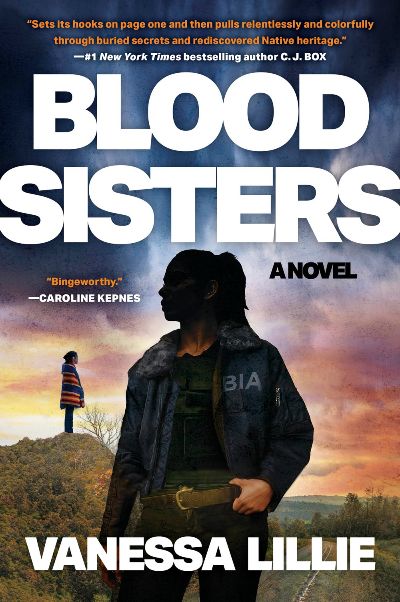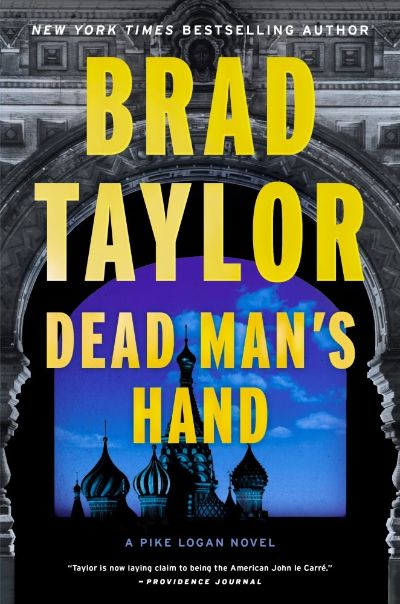You know those cute programs where kids leave their teddy bear for a library sleepover? This is nothing like that. Instead, staying in the library overnight are student workers who have just completed a tough interview process for the one permanent job on offer in the university’s rare-books department (Jurczyk is mining a setting similar to her 2022 The Department of Rare Books and Special Collections), a toxic workplace if ever there was one. Also attending is non-student Ro, along because he can provide the drug, acid, that will kickstart a ceremony that student Davey has meticulously planned. Davey has invited Ro and five others to re-enact a Greek tradition around the Persephone myth, in which intoxicated pilgrims face either death or the thing they most fear, in order to conquer the fear. The tortured inner voice of narrator Faye, the shyest library employee, is used to wonderful effect by Jurczyk to chronicle a frenzied, terrifying night in a locked room—the library’s basement cage—that starts with a killing. The ending here is a shock, and along the way the author delivers chills that are packed with narcissistic venom and choking claustrophobia. This will be a hit with those who enjoyed Jurczyk’s previous work. If you like myth retellings, try one of the many versions of the Irish Tír na nÓg story, which mirrors elements of the tale of Persephone.
Thrillers
Subterfuge and supernatural elements infuse this dark, absorbing debut. Our protagonist is Midwestern police detective Anna Koray, who’s had a relatively staid career until she makes the mistake of confronting a violent perpetrator without backup. She kills him, but is shot herself in the process. When recovering, she’s required to undertake counseling; at the same time, she pushes herself into the investigation of a serial killer whose horrifying work resembles that of her father, who years ago was executed for his murder of multiple women as sacrifices to a forest god. Both Anna’s colleagues and the doctor she’s in a burgeoning relationship with have no idea that she spent her childhood in thrall to the Forest Strangler. Anna herself doesn’t even have all the details, which were sealed away in her subconscious by a manipulative therapist whom she now sees for the reverse process, setting in motion an emotional and dangerous roller coaster of unraveling secrets and treacherous confrontations. A cold-case podcaster adds a moral dilemma to the exciting tale—when is it better to leave the truth buried? Readers who enjoy a wilderness thriller, such as Elizabeth Hand’s Hokuloa Road or Paul Doiron’s Dead Man’s Wake, will appreciate this story.
Cort Gentry, the Gray Man; and his girlfriend, Zoya Zakharova, have assumed new identities while trying to live off the grid for a few months. But they can only hide for so long. A colleague of Zoya’s arrives in the Central American town where Cort and Zoya felt safe and asks her help in rescuing a Russian scientist who is one of several engineers and computer experts with targets on their backs. Shortly after the meeting, Cort and Zoya must flee to avoid the weaponized drones and army of killers sent to take them out. One of those soldiers has a past with Cort and a reputation of being as good an assassin as Cort was in his prime. The mayhem grows in intensity as the truth unveils itself; a mystery controller named Cyrus calls all the shots and does not care about any collateral damage. Greaney combines the best of special-ops novels with a dash of James Bond, and though the page length is significant, the story never bores or lags. The Chaos Agent is another winner, and whether you are a fan or new to the Gray Man, this is a blast (no pun intended).
Passing a daycare that’s engulfed in flames, Ashley Driskell risks her life to save several children. During an emotional reunion in the hospital, her husband, Luke, lets her know that someone took a video of her heroics and she’s now the darling of the Internet. Luke knows this won’t make Ashley happy, as she’s very private and dislikes even having her photo taken. Still, he’s surprised at Ashley’s vehemence that he must go, NOW, and pick up her daughter Joy, who is his stepdaughter, from the babysitter. Things become even stranger when the next morning Luke wakes to find that Joy is gone from their home and Ashley is missing from the hospital. Luke uses his desperation and sharp research skills to engrossing effect, digging deeper and deeper into the twisting mystery that is Ashley’s life. You won’t see the answers coming here, nor the satisfying ending; the love, loyalty, and determination shown by Luke are bonuses. A great read, especially for fans of D.J. Palmer’s My Wife is Missing.
At first, this novel seems to be a predictable, mildly entertaining thriller. Erin and Will take themselves off to marriage counseling because something has gone wrong, at least for Erin, who is suddenly putting her husband at arm’s length. But what’s the source of the problem? Even their counselor, Maggie, becomes consumed trying to understand what has gone awry in their marriage, especially when Will is, annoyingly, nearly the perfect man. Then, out of nowhere, Perks drops a clue that made my head spin, cranks up the narrative’s pace, and pulls us deeper into the disturbing past of Erin and Maggie. Since this is from multiple perspectives, and jumps skillfully around the narrative time-line, readers will have fun trying to put this complex, fractured and totally compelling story together. A perfect read for fans of Lisa Jewell and B.A. Paris.
2019 bookends this murder mystery. In that year, student KC, a trans man, is the weary caretaker of a college dorm, picking up after his lazy peers and saving them from their drunken worst selves. The dorm he works in has a rumor-clad oddity: a young female student was killed there years ago, and the true-crime frenzy has made the building a magnet for professional and amateur sleuths. Their work sends us back to just before New Years Eve 1999, where we meet the victim, Karlie Richards. Karlie seems to have it all but, like everyone she meets, has dragged a weight of hopes, loves, and past mistakes to her new life in college. It’s the pre-#MeToo era as Karlie faces what turns out to be her final days, and readers will love to hate the professor who has a way too close relationship to his female students, and long to jump into the pages to warn the young women away. But there’s nothing we can do as Karlie’s doomed world comes to life and Pearson skillfully introduces several more characters who could have killed Karlie and more reasons why they would have done so. The divergent lives of the haves and have nots in college towns, and the experiences of evangelical students taking their first foray into a more secular world, are starkly painted in this dark debut novel by an author to watch.
This debut novel should come with blood-pressure pills. The tension at first comes from strangeness: Mother; Father; their daughter, Juno; and son, Boy live a harsh, homesteading life alone on an island. Is it the present day? What part of the world are they in? Is the mortal danger from outsiders that the parents warn about real? The timing element is all that’s clear for a good portion of the book: it’s the current day, but apart from visits from the mailman who comes from the mainland, during which Juno and Boy must hide from view, the rest is unknown. Bit by bit, teen Juno’s desire for freedom and her determination to find out more about their situation despite her sinister, violent parents’ “seven commandments” (including “We must always kill quickly and painlessly”) ramp up the fear to a terrifying do-or-die scene. Readers will be rapt as they race to the end to find out who survives this nightmare that’s effectively mixed with a fairytale motif echoing one of Juno’s favorite stories. Menger’s previous work is in film, TV, and audiobooks: try his Audible Originals Monster 1983 and Ghostbox while you wait for this gripping thriller.
“Where there’s pain, there’s blame,” which is why Syd Walker lives far from her Oklahoma roots and hasn’t seen her family in years. As a teen, Syd; her sister, Emma Lou; and her best friend, Luna, were attacked by a pair of masked Tsigilis, the Cherokee word for devils. Syd, who is Cherokee, shot one of them dead, but his gang killed Luna and her parents. She can’t forgive herself for not saving Luna, and the small town of Picher can’t decide, even all these years later, what she should have done that night. That past is now coming back with a vengeance as the epidemic of missing young Native women now seems to have swallowed Emma Lou, and the body of another young woman has been found, with Syd’s old work ID card in her mouth. Syd’s return home immerses the reader in the difficulty of returning to a place and people you’ve outgrown, the bitter choices we must sometimes make—Syd is now an archaeologist for the same Bureau of Indian Affairs that has cost her people so much—and the strength that love and loyalty bring. Lillie (an enrolled citizen of the Cherokee Nation of Oklahoma) adds to the story details of Native history and current day life, with sardonic wit both tempering and highlighting the pain that pierces both times. A dark and propulsive thriller for fans of Kelly J. Ford.
Noted for her historical and speculative fiction (The Spanish Bow; Annie and the Wolves), Romano-Lax ventures into suspense territory with this atmospheric, entertaining thriller about a grieving mother investigating her daughter’s mysterious death. Three months after her 23-year-old daughter was presumed to have drowned in Lake Atitlán, Central America’s deepest lake, Rose arrives in Guatemala. Although a six-week search failed to recover Jules’s body, Rose is unsatisfied with the official investigation’s conclusion. She wants to learn more about her daughter’s final hours and why Jules, who had a lifelong fear of water, was last seen swimming in the lake. A key but uncooperative witness is Eva Marshall, the best-selling memoirist and Jules’s literary idol, for whom the aspiring writer had just started working as a personal assistant before her disappearance. Frustrated with Eva’s refusal to schedule a visit or a phone call from Rose and her ex-husband Matt, a determined Rose signs up under her maiden name for an upcoming memoir-writing workshop taught by the charismatic Eva at her Guatemalan lakeside retreat. “Rose has no ambitions whatsoever as a memoirist, not even the tiniest desire to be published.…But you do what you must, after you’ve already tried everything else.” Despite the glamor and natural beauty of her surroundings, Rose senses something off both in Eva and in how she runs her workshop. Did Jules uncover a dark truth that led to her death? While crafting a taut tale of suspense, Romano-Lax also turns a gimlet eye on the sometimes-toxic writing-workshop industry and the social media demands that turn authors into marketers and branders. In spite of an epilogue that feels a bit forced, the author has written a satisfying tale about the sometimes-strained but always unbreakable bonds between mothers and daughters.
A secret meeting between a rogue team of Ukranians desperate for peace and military intelligence officers from Russia sparks the chaos in Taylor’s latest Taskforce novel. The plan they concoct involves assassinating Putin, but Putin already knows of their plot. His solution is to have his most trusted officer run a counterattack once he commits an act of violence to keep Sweden from joining NATO. Pike Logan and his Taskforce team learn of the Swedish offensive, and soon, they are wrapped in an operation with massive complications. What they don’t realize is that Putin’s contingency, if he’s killed, involves launching the Perimeter Nuclear System known as the Dead Hand. Logan and his team must confront how someone can be the enemy when they have the same goals. Whether this is your first time with the Taskforce or your eighteenth, this series remains intense, timely, and worthwhile. Taylor is one of the best in the special ops world. Brad Thor and Jack Carr fans should already have Taylor on their mandatory reading list.


